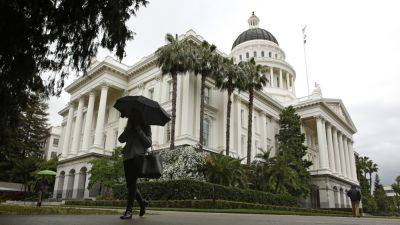How California, Once Flush, Got Stuck With a Budget Shortfall
California’s state budget dwarfs the gross domestic products of some countries, supporting the nation’s most populous state and the world’s fifth-largest economy. When Golden State finances swing, there is an impact — and they can swing wildly. Two years ago, the state was projecting a record surplus; now, state lawmakers are confronting tens of billions of dollars in red ink.
State law requires legislators to pass a balanced budget by June 15 each year or lose their pay and expense money. It’s typically a fraught process. This year’s negotiations have largely centered on how much social spending the state will cut and whether the state should postpone an increase in the minimum wage that was signed into law last year for nearly all health workers, many of whom work at state teaching hospitals.
On Thursday, the Legislature passed place-holder legislation that allows lawmakers to technically meet the deadline while talks with Gov. Gavin Newsom continue on some of the remaining sticking points. A final deal, to be written into a few supplemental bills, is expected in a few days. The budget takes effect on July 1.
Volatility is a natural byproduct of California’s system of taxation. Designed to be progressive and fairer to low-income taxpayers, it relies heavily on taxes on personal income and capital gains.
When rich taxpayers have a good year, the state government reaps a windfall. But when initial public offerings slump or the stock market reverses, revenue tanks. And the state has limited flexibility in raising revenue in times of shortfall because, in most cases, the law requires a two-thirds supermajority in the Legislature to pass a tax increase.
Californians have chipped away for some time at the state’s budget







